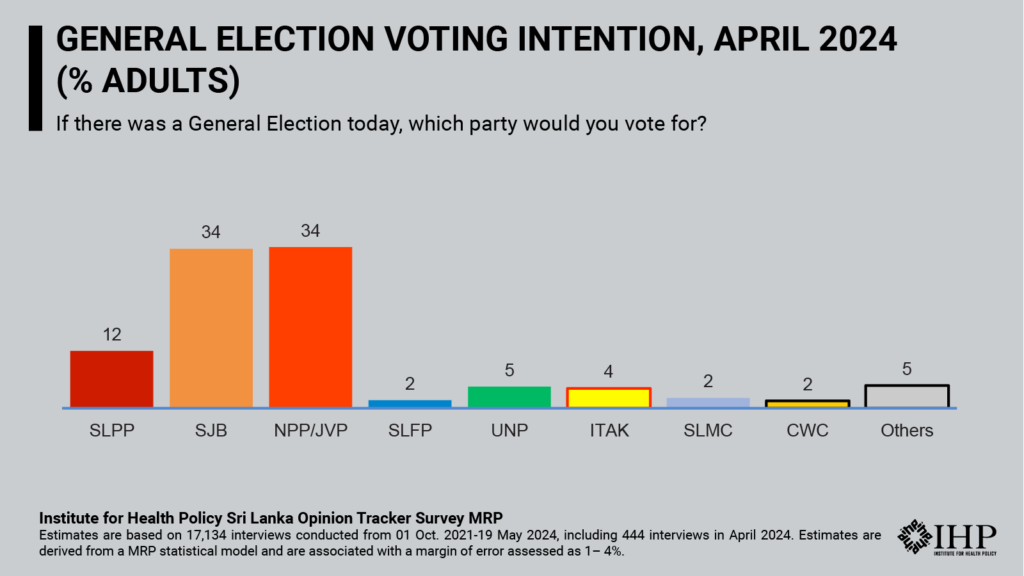Photo courtesy of Newscutter
The latest estimates from Institute for Health Policy’s (IHP) SLOTS MRP model show the SJB and NPP/JVP both having 34% support of Sri Lankan adults in April. Support for NPP/JVP and SJB has shown a modest increasing trend since July 2023. Voters’ support for UNP, SLPP, SLFP, ITAK, SLMC and other parties remain relatively unchanged. The April estimates are provisional and are associated with a margin of error of 1–4% for the four leading parties.


Dr. Rannan-Eliya, the SLOTS polling director, commented, “The SLOTS polling in April suffered from a lower response rate owing to the New Year holidays, and we think this may have skewed the sample in favour of SJB supporters. The early May interviews partly compensated for this, and it’s possible that our June interviews may result in further revisions to our model estimates.
“We’ve been asked about some other recent internet polls that showed much higher levels of support for the NPP/JVP. We think these over-estimate NPP/JVP support. SLOTS routinely collects data from all respondents on whether they have internet access, and whether they are willing to participate in an internet survey. These data show that NPP/JVP supporters are far more likely to have internet access and even more likely to be willing to respond to internet surveys, and this difference remains even after controlling for past voting behaviour. Our data indicates internet polls may overestimate NPP/JVP support by about 10%, and for this kind of reason we have previously decided that the time is not right to do internet polling.”
These SLOTS estimates are for all adults and not for likely voters. They are based on the IHP SLOTS Multilevel Regression and Poststratification (MRP) model.
The April update is based on 17,134 interviews conducted with adults across Sri Lanka since October 2021 including 444 interviews carried out in April 2024. IHP’s SLOTS MRP methodology first estimates the relationship between a wide variety of characteristics about respondents and their opinions, in this case, “If there was a General Election today, which party would you vote for?”
SLOTS combines interviews from a national sample of adults (ages 18 and over) reached by random digit dialling of mobile numbers, and others coming from a national panel of respondents who were previously recruited through random selection and face-to-face interviews.

